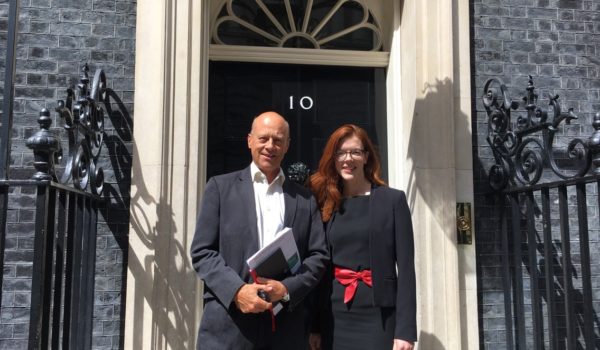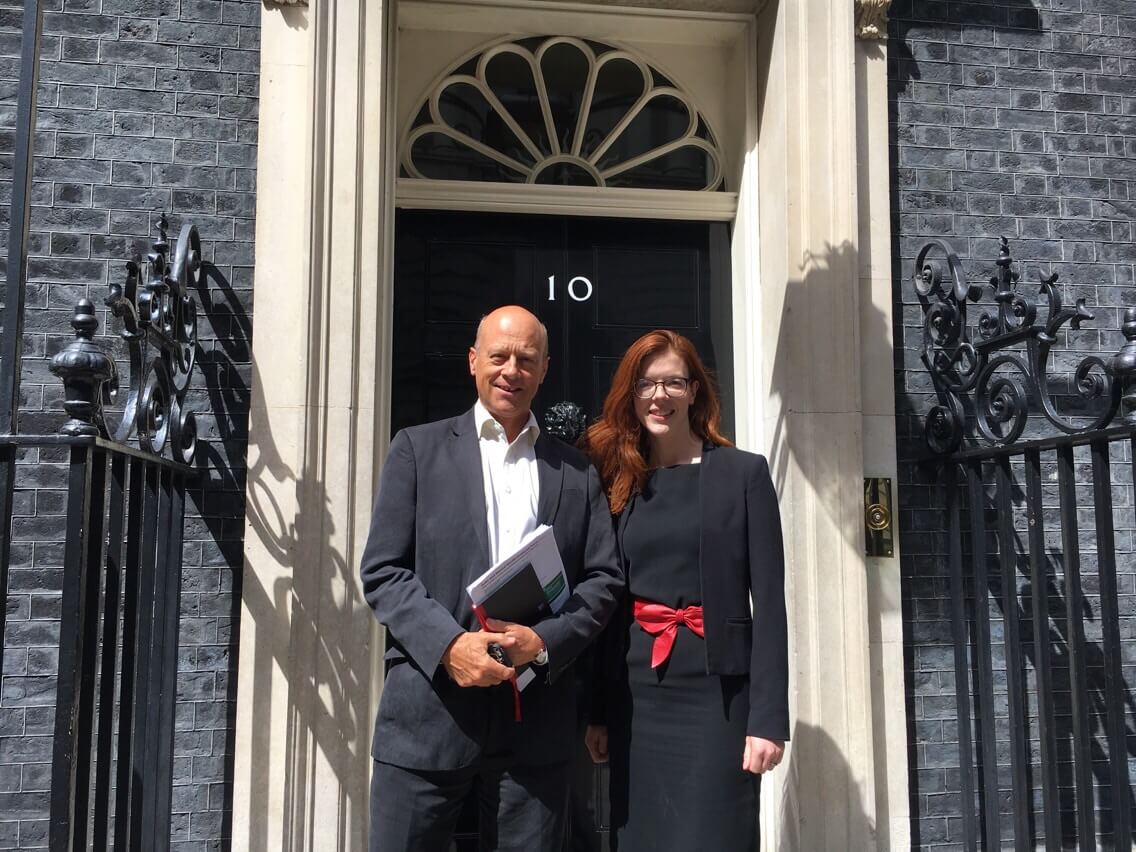
Simon Crine, Interim Director, Money and Mental Health
Getting the ball rolling - away with the charge
Today Money and Mental Health made our second visit to 10 Downing Street to talk about our ‘Stop the charge’ campaign and how we might get rid of charges for the Debt and Mental Health Evidence Form. The Institute first highlighted the unacceptable burden of the charge on people with money and mental health problems, at a time when they are most vulnerable, in a briefing paper last September.
The meeting convened by the Department of Health and introduced by the new Minister for Mental Health, Jackie Doyle Price, included most if not all of the organisations who can stop the charge. These included representatives of the creditors including UK Finance and the CSA, the clinicians (the Royal Colleges of Psychiatry, Nursing and GPs and the BMA) and the money advice sector (including the Money Advice Trust, StepChange and Citizens Advice) as well as various individuals with expert knowledge of the issue like Chris Fitch who was one of the drivers of the original form in 2007.
The meeting prompted some challenging discussions about where the charge for this form should fall, but all attendees were agreed that we need to find a way to stop it falling on the individual with mental health problems. It was agreed to set up a representative working group (with Money and Mental Health attending) to look at the way the Form works, the threshold for requiring it and the the technological issues. Stage two will look at how the charges can be lifted.
Money, mental health and the PM
One in four people with a mental health problem is also in problem debt, debt that can make mental health recovery take longer. Many banks recognise this and are willing to offer extra financial support, freezing interest payments or even writing off some debts when people are struggling. But to access this help customers are often asked to provide evidence of their mental health problem, signed by a medical professional. We found that one in three people who asked for this form were being charged, leaving many either in greater financial difficulty or going without this help as they couldn’t pay.
As Ian, a member of our Research Community said to us:
“I was on basic ESA, waiting for a benefits assessment to find out if they thought I was fit to work, so I was on really low benefits. Paying £20 for the doctor’s note had a really big impact, it was a big chunk of the money I had left that week. I didn’t expect them to charge me. I was going to go to the shop after my appointment to get food, but after the doctor’s I didn’t have any money left. Until my benefits came in I couldn’t afford fresh food, so had to live on dry pasta and the things in the cupboard.”
Following our ‘Stop the charge’ campaign last year (watch the campaign video), the Prime Minister made the following commitment in January:
“Despite known links between debt and mental health, currently hundreds of mental health patients are charged…by their GP for a form to prove they have mental health issues. To end this unfair practice the Department for Health will undertake a formal review of the mental health debt form, working with the Money and Mental Health Policy Institute.”
We were delighted that the Prime Minister recognised the importance of this issue and committed to taking action. We know this is only part of the puzzle when it comes to tackling the link between money and mental health, but while the charge isn’t always large, the impact it has on people often is – so we’re making every effort to get it stopped.
So how do we get there?
The meeting scoped out a review with four key parts:
- streamlining the form and the process of using it to reduce the burden on health professionals
- reducing the burden of evidence needed, by looking at further guidance and support for non-health professionals
- exploring the potential of technology to facilitate greater sharing of health information where appropriate, and
- looking at whether there is a significant cost to completing the form, and if so, who should be picking this up so that the individual in debt isn’t left to.
There are a number of ways that these issues could be resolved, but there was general agreement in principle that something needs to be done. We will be at the table and we will keep you updated. But we are on the way. The ball is rolling.

To keep updated with our progress, make sure you sign up to our mailing list
